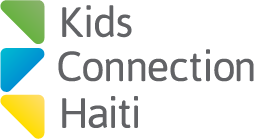Haiti
Haiti is the poorest country in the Western Hemisphere and, rather than improving over time, the situation appears to be worsening. Due to rampant inflation, a sharp depreciation of the Haitian gourde, and poor tax collection, it is highly likely that the fiscal situation will continue to deteriorate in the coming year. In August of this year, the inflation rate in Haiti was recorded at 14.1%. It averaged 11.94% from 2003 until 2018. As the fiscal situation deteriorates, the cost of living continues to increase and, over time, it has become more difficult and often impossible for the average Haitian to pay for their basic necessities, including education.[i]
The Haitian Constitution requires free education for all. However, the Haitian government has not been able to provide this. Although the educational system is managed by the government, the ministry is not able to provide funding for a lot of public education. Currently, 90% of the education in Haiti is provided by international private- or church affiliated schools. In fact, Haiti has more private schools than any other country, however the majority of the population can’t afford the school fees. In addition, students often need to pay for exams in order to pass on to the next grade. If they can’t pay, their children cannot move on.
UNICEF[ii] estimates the following statistics with respect to Haitian education: 76.7% of males and 70.5% of females attend primary school and the survival rate to completion of primary school is 85.1%. In contrast, only 21.6% of males and 29.1% of females attend secondary school. The World Bank[iii] estimates that 8 out of 10 college educated Haitian lives outside of the country. USAID[iv] estimates that the average Haitian 25 years old and older has less than 5 years of schooling and the literacy rate of 15-24 year olds is 72%. The Earthquake in 2010 worsened the situation, destroying infrastructure and displacing 50-90% of the students. 1.3 million children were affected and 4200 schools were destroyed. Over the years the government has tried implementing policies to help improve the educational system but it still has a long way to go[v].
Many NGO’s are helping to improve access to education. Kids Connection Haiti is one of these organizations. We help students attend various levels of education including high school, university, vocational and micro-business training. Our mission is to empower orphans to become contributing, self-sufficient members within their communities through education, life skills training, community service, mentorship, and career development.
We currently have >60 students enrolled and our goal is to support 100 students by the end of this year. By sponsoring one of our students you give access to education to a young orphaned adult. Please help make education accessible. Sign up for sponsorship at: http://www.kidsconnectionhaiti.org
Kids Connection Haiti
———
[ii]https://www.unicef.org/infobycountry/haiti_statistics.html
[iv]https://www.usaid.gov/haiti/education
[v]https://en.wikipedia.org/wiki/Education_in_Haiti


